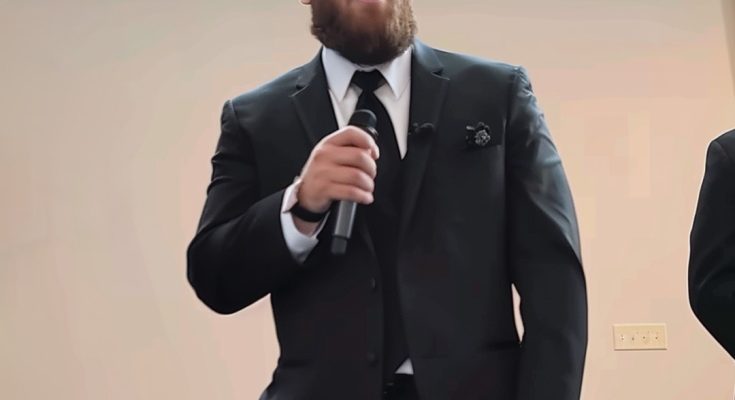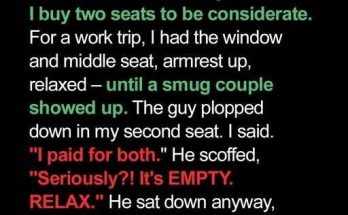Have you ever had someone try to erase you from your own story? To suggest the love you lived wasn’t real enough? That’s what it felt like when my brother decided I wasn’t family enough to say goodbye to our mother.

The house still carries her scent—lavender hand cream—and sometimes I catch myself pausing in doorways, expecting to hear her humming from the kitchen. Two weeks have passed since we lost Mom to ovarian cancer, and the grief only seems to deepen.
My aunt Susan checks in twice a day, always with the same question: “Emily, honey, are you eating?” I tell her yes, though the truth is that the refrigerator is filled with untouched casseroles from well-meaning neighbors. Food feels like a foreign language right now.
Mom was everything to me. She chose me. That matters.
I was five when she and Dad adopted me—a quiet, guarded child with eyes too wary for my age. They already had Mark, their biological son, who was eight and all charm. Mom placed her hand gently on my shoulder the day we met and introduced me to him: “This is your sister.” That night, she whispered, “This is your forever home.” And she meant it.
Dad was wonderful too—he taught me to ride a bike and never lost his temper. But when he passed away from a heart attack eight years after I arrived, it was Mom who became my universe. She never missed a recital. She bandaged scrapes and heartbreaks alike, always with the same calm, unwavering love.
She’d say it often: “Blood doesn’t make a family. Love does.”
We were close in a way that only deep, chosen love can be. After college, I took a job just twenty minutes away so we could keep our Sunday brunches and spontaneous movie nights. But then came the diagnosis: stage three ovarian cancer.
I promised her we’d fight—and we did. Two years of chemo. Late-night ER visits. Days when her voice gave out but she still tried to comfort me. I moved into her house and became her caregiver—making meals, managing meds, holding her hand through it all.
Mark came twice. Once with flowers on her birthday. Once for five minutes when she entered hospice. “I can’t handle seeing her like this,” he said, and left.
He had his reasons, I guess. A career in finance, a polished family, a life three hours away. Mom never held it against him. “Everyone grieves differently,” she’d say, brushing away the hurt in her voice.
The morning of her funeral was beautiful—crisp, golden light she would’ve loved. I wore the navy blue dress she’d picked out for me. I’d tucked my eulogy in my purse, the one she helped me write when her mind was still clear. That letter was more than a speech. It was our goodbye.
When I got to the church, Mark was already there with his wife and kids. We exchanged a quiet hello. Then, just before the service began, he pulled me aside.
“You should sit this one out,” he said. “No one wants to hear from the adopted one. The speech should come from real family.”
It hit like ice water.
He’d never used that word before—not as a weapon. And our parents never allowed that divide. We were their children. Always.
I wanted to yell, to throw every sacrifice I’d made into his face. But his mind was made up. So I nodded. “Fine,” I whispered. “Whatever you want.”
His eulogy was… fine. Polite. Predictable. When he stepped down, a hospice nurse named Grace approached with an envelope.
“Your mother asked me to give you this,” she told him gently, loud enough for those around us to hear.
He opened it at the podium. Inside was her familiar pale blue stationery. His hands shook as he read it aloud.
“To my children, Mark and Emily. Yes, both of you. Blood makes children related. Love makes you mine.”
I felt a sob rise in my chest.
“Mark, you were my first. My wild child. The one who never stopped running. Emily, you were my answered prayer. The soul who chose to come to me in a different way, but just as deeply.”
He looked at me across the pews. “Please,” he said. “Come up here. I’m sorry.”
I rose, my hands trembling as I opened the speech she helped me write. I spoke of her strength, her humor, her teaching days, her pie with the secret ingredient she never revealed. I told them about the way she made everyone feel seen. And I told them how she taught me that family is not about biology—it’s about presence. About love.
When I finished, there were tears and soft laughter. People came up after to hug me, to tell me she would have been proud.
Mark approached quietly before I left the reception. “I was wrong,” he said. “About everything.”
“I know,” I replied.
We stood together in the kind of silence that invites healing instead of harm.
“She loved you so much,” I told him. “She never stopped hoping.”
“I wasted so much time,” he said, choking up.
“Then don’t waste any more,” I answered, repeating the lesson she’d lived by: it’s never too late to start over.
And as we walked back into the hall together, I realized something: I didn’t need a podium to prove I was her daughter. She’d already said it loud enough for the world to hear.


